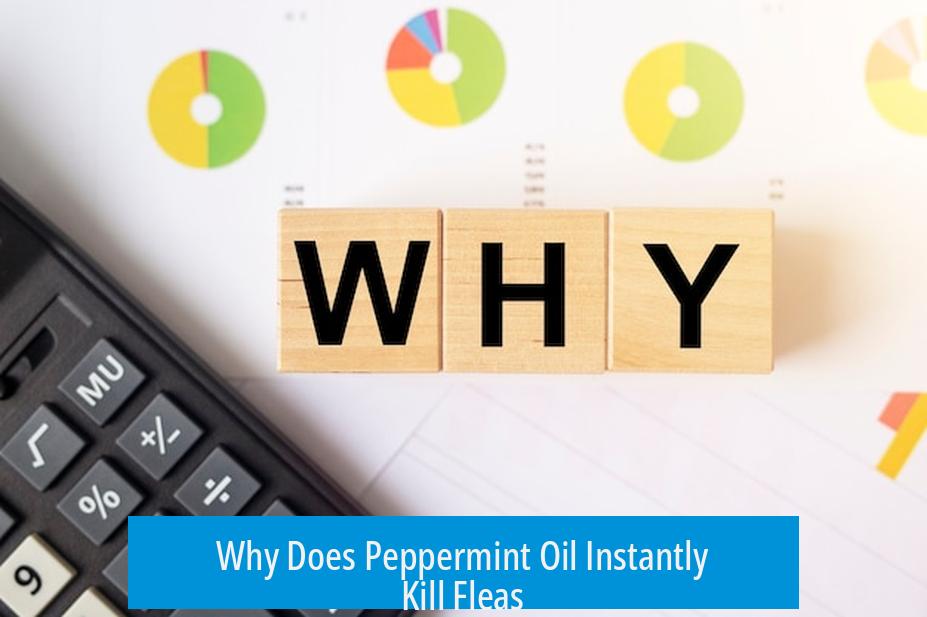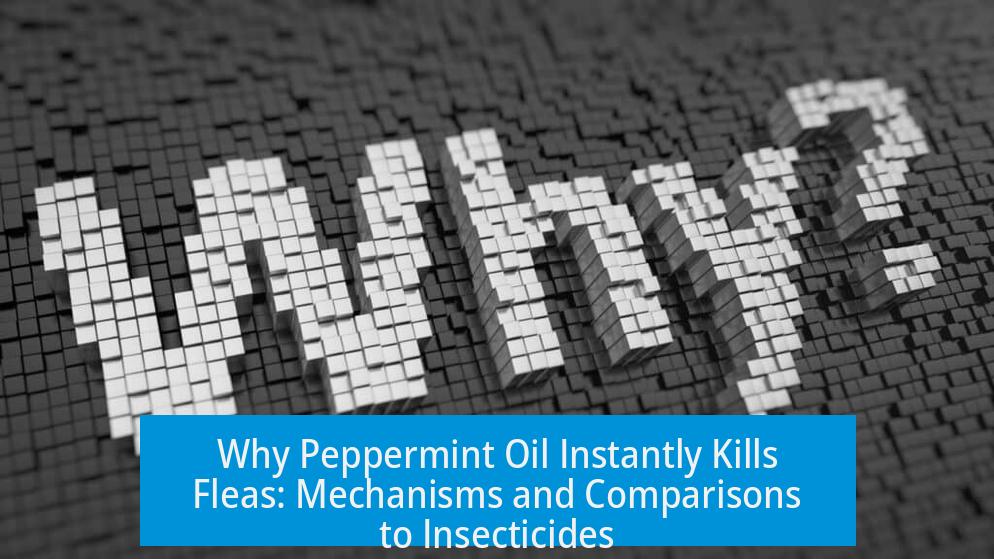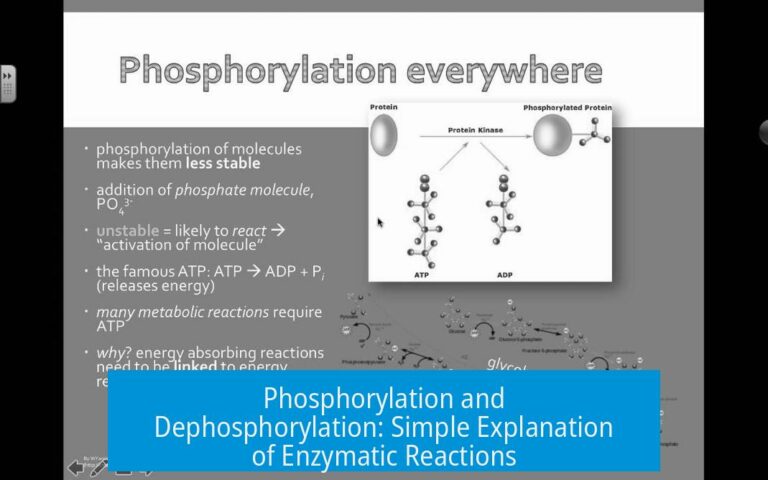Why Does Peppermint Oil Instantly Kill Fleas?

Peppermint oil kills fleas instantly because its active compounds function as neurotoxins that disrupt the flea’s nerve signals, causing paralysis and death. Additionally, peppermint oil’s physical texture blocks the fleas’ airways, suffocating them rapidly. These combined effects deliver fast and effective flea control.
Neurotoxic Mechanism of Peppermint Oil on Fleas
Peppermint oil contains a complex mixture of chemical compounds called terpenes. These terpenes act on critical molecular pathways in insects but are generally safe for humans at proper dosages. Flea nervous systems are highly sensitive to certain terpenes, which interfere with nerve function by inhibiting the enzyme acetylcholinesterase (AchE).
Acetylcholinesterase breaks down acetylcholine, a neurotransmitter essential for transmitting nerve impulses. When peppermint oil terpenes inhibit AchE, acetylcholine accumulates at nerve synapses. This disrupts communication between nerves, causing the flea’s nervous system to malfunction. Fleas may become hyperactive, then paralyzed as their muscles lock up and limbs hyperextend.
- Terpenes in peppermint oil (such as menthol) disrupt the flea’s neurotransmission.
- Inhibition of AchE leads to nerve signal misfiring.
- Results in muscle paralysis and death within seconds.
This neurotoxic effect is rapid, often referred to as “rapid knockdown,” where fleas become immobile very quickly. Similar mechanisms underlie many synthetic insecticides, such as malathion, though peppermint oil is natural and less toxic to mammals.
Physical Effects: Suffocation and Airway Blockage
Besides neurotoxicity, peppermint oil affects fleas physically. The oil’s texture and density can block the tiny airways through which fleas breathe. Insects rely on openings called spiracles to exchange air. When peppermint oil coats these spiracles, it interferes with respiration.
- Peppermint oil’s texture clogs insect spiracles.
- Blocks airflow, suffocating the fleas.
- Strong scent deters fleas and disrupts their normal breathing patterns.
The sensory offensive of peppermint oil’s strong odor further distresses fleas. They avoid the smell and their respiratory function suffers, contributing to rapid flea mortality.
Empirical Evidence: Observations and Practical Application
Field observations validate peppermint oil’s rapid flea-killing ability. Spraying a small amount on a pet’s tail can cause fleas to jump and die instantly. These quick results support the biochemical and physical explanations.
Using peppermint oil in combination with clove oil enhances the effect. Research shows clove oil suffocates and kills 100% of fleas within an hour. Applying a mixture of peppermint and clove oils acts synergistically:
- Peppermint oil delivers neurotoxic knockdown.
- Clove oil ensures suffocation and prevents flea survival.
- Together they repel fleas and ticks.
Routine application of light sprays on pets’ back legs and tails before outdoor exposure effectively prevents flea infestations. The method creates an insect-repelling barrier. Users report pets remain flea-free with consistent use.
Comparison to Synthetic Insecticides
Malathion, a commercial insecticide, acts similarly by inhibiting acetylcholinesterase. This shared mode with peppermint oil underlines why peppermint oil is effective. However, synthetic insecticides often pose higher risks to mammals and the environment.
Peppermint oil is a natural alternative offering rapid flea control with comparatively low human toxicity. Its plant-based molecules evolved to deter insects, molds, and bacteria through neurotoxicity and chemical defense.
Toxicity and Safety Considerations
Although peppermint oil is toxic to insects, it poses minimal risk to humans at proper doses. Toxicity depends on concentration and exposure. High doses can be harmful, as the same biochemical pathways exist in mammals but require much larger amounts to affect humans.
Caution is advised when applying peppermint oil:
- Do not use undiluted oil on children or pets.
- Proper dilution ensures safety and efficacy.
- Sensory effects, such as the cooling sensation from menthol, occur due to receptor binding but are harmless in small amounts.
One anecdote from medical chemistry highlights the danger of incorrect dosing: a pharmacy technician failed to dilute peppermint oil given to a child, resulting in fatal toxicity. This underscores the importance of responsible usage.
Summary Table: Peppermint Oil Effects on Fleas
| Effect Type | Mechanism | Outcome on Fleas |
|---|---|---|
| Neurotoxicity | Terpenes inhibit acetylcholinesterase, disrupt nerve signals. | Hyperactivity, muscle paralysis, rapid death. |
| Physical suffocation | Oil texture blocks spiracles, interrupts breathing. | Flea suffocates and dies. |
| Olfactory disruption | Strong scent repels fleas and ticks. | Fleas avoid treated areas. |
Key Takeaways
- Peppermint oil kills fleas quickly via nerve signal disruption, paralyzing and killing them.
- It blocks flea breathing by physically clogging respiratory openings.
- Combining peppermint and clove oils enables both rapid knockdown and suffocation effects.
- Regular light sprays on pets before outdoor exposure prevent flea infestations efficiently.
- Peppermint oil is safer for humans than synthetic insecticides but requires proper dilution and cautious use.
Why does peppermint oil kill fleas so quickly?
Peppermint oil contains compounds called terpenes. These block key nerve signals in fleas, causing paralysis. The result is rapid knockdown, often within seconds.
Is peppermint oil dangerous to fleas only or humans too?
Peppermint oil is toxic to fleas but safe for humans in small amounts. Its toxicity depends on dose. In insects, it disrupts nervous system function, but humans can tolerate it if used properly.
How does peppermint oil physically kill fleas besides nerve effects?
Its oily texture can block flea airways, suffocating them. Fleas also dislike the strong smell, which disrupts their breathing and behavior.
Can peppermint oil prevent fleas from infesting pets?
Yes. A light spray of peppermint oil on a pet’s back legs and tail keeps fleas away. It works as a repellant and kills fleas on contact before they spread.
Does peppermint oil work better with other oils to kill fleas?
Combining peppermint with clove oil enhances flea control. Clove oil suffocates fleas within an hour, making the mix highly effective both for killing and repelling.





Leave a Comment